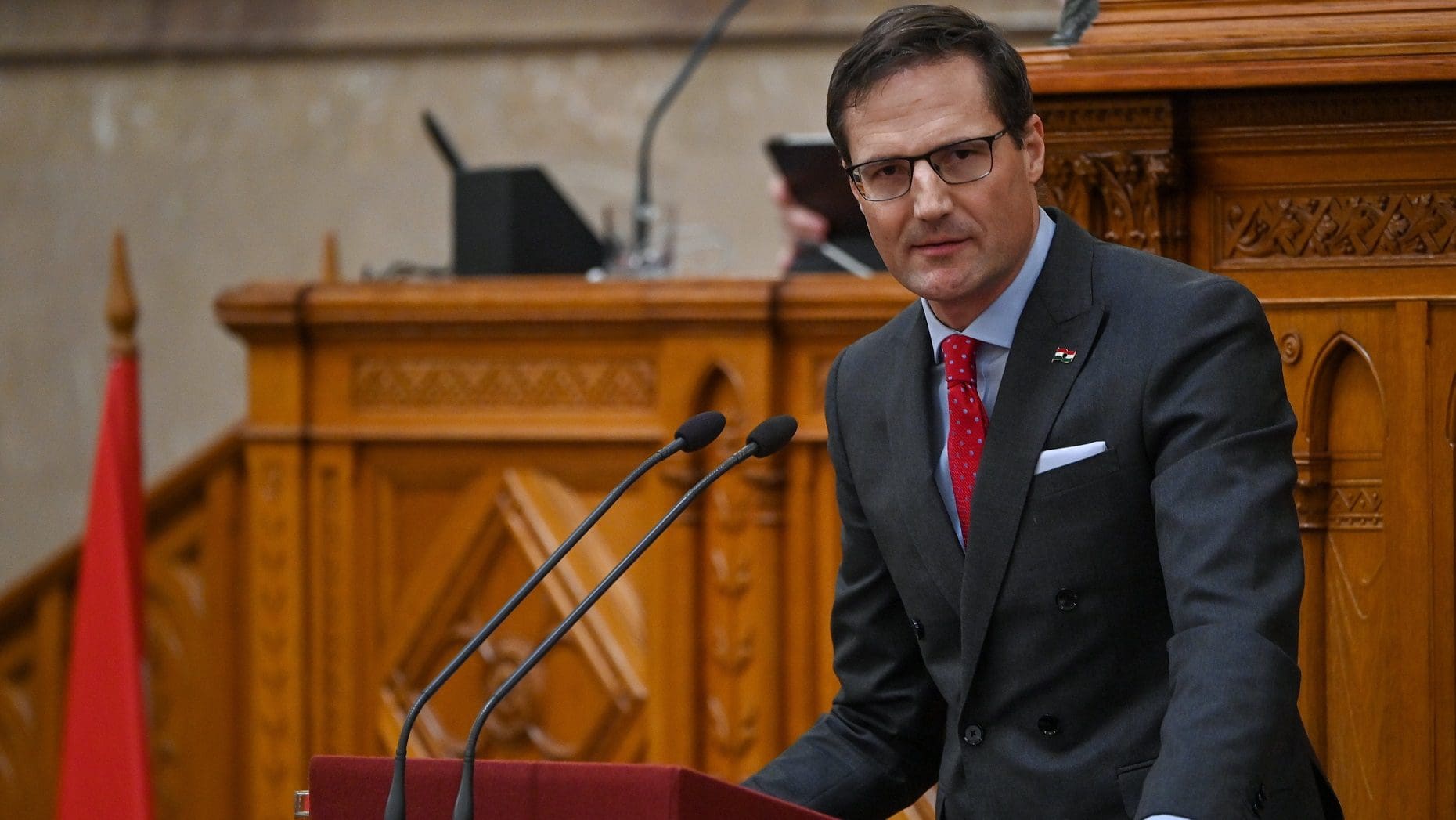Pesach (the Jewish Passover) is a week-long holiday, during the first two days and the last two days of which work is forbidden. Those Jews who are just now clicking on the news to catch up on the past few days may be in for a shocking surprise: US Ambassador to Hungary David Pressman has invited none other than Márton Gyöngyösi, MEP and the president of the far-right Jobbik party, to the Pesach seder (ritual dinner) at his residence.
If the name sounds familiar, that is no mistake. Perhaps some still remember certain statements made by Gyöngyösi that caused international outrage in 2012. Gyöngyösi, then a Jobbik MEP, called for drawing up a list of politicians of Jewish ancestry: ‘now is the time to assess the number of people of Jewish origin living here, and especially in the Hungarian parliament and the Hungarian government, who pose a certain national security risk to Hungary.’
And while some could argue that Gyöngyösi has since changed his views, in a 2018 interview with The Times of Israel, he referred to Gaza as a ‘concentration camp’ run by Jews.
‘It’s the Israeli embassy, Israel killing civilians, Israel having bombed the UN school, Israel having killed close to 70 civilians, Israel having occupied the territories, it’s Israel making this territory the biggest concentration camp in modern history,’ he said.
The reaction was naturally outrage.
This is what Tamás Kötter, a conservative lawyer and best-selling author, wrote in response to the invitation: ‘It is so surreal that I can’t find the words to describe it: a hardcore anti-Semite celebrating Jewish Passover in a yarmulke on the side of the vigilant guardian of democracy.’ Radio pundit Csaba Belénessy responded with a satiric question, ‘But what about the Jewish lists that he promised to write? Did he write it there or later, from memory?’
Few reactions have arrived from the Jewish community, but that is understandable because of the holiday. Tamás Deutsch, a Fidesz MEP who is proud of his Jewish ancestry, called Gyöngyösi’s invitation an act of ‘provocation’ in a statement. Chief Rabbi Tamás Róna, belonging to the Conservative Hungarian Jewish Prayer Association (ZSIMA), expressed his concern that the invitation of Gyöngyösi has ‘upset the real, faithful Jewish community in Hungary’.
Sitting at a Seder table ‘with a politician who has evoked the worst days of the [Holocaust] and has not even apologised to the Jewish people since is a crime, the lowest of the low’.
Neodvisni Novinar on Twitter: “Tega ne boste videli v mainstream medijih, zato ga bom delil:Ameriški veleposlanik na Madžarskem David Pressman je praznoval Sederjevo večerjo z enim najbolj razvpitih madžarskih skrajno desnih antisemitskih fašistov.Gyongyosi Marton iz stranke Jobbik je postal znan po tem, da… pic.twitter.com/E1HLQ6qWAs / Twitter”
Tega ne boste videli v mainstream medijih, zato ga bom delil:Ameriški veleposlanik na Madžarskem David Pressman je praznoval Sederjevo večerjo z enim najbolj razvpitih madžarskih skrajno desnih antisemitskih fašistov.Gyongyosi Marton iz stranke Jobbik je postal znan po tem, da… pic.twitter.com/E1HLQ6qWAs
Gyöngyösi’s invitation is outrageous in many ways. Since his arrival,
Pressman has continued to criticise the Hungarian government through aggressive communication, portraying himself as a champion of democracy and liberalism,
and constantly lecturing the Hungarian people on how they should live, how they should run their country and—implicitly—how they should vote.
He then took it upon himself to invite the biggest anti-Semite among currently active Hungarian politicians on the day when Hungarian Jews, like their fellow co-religionists around the world, commemorate the divine liberation from Egypt. No other politician in the last decade has scourged Hungarian Jewry, Zionism, Israel and the memory of the Holocaust with such fervour and enthusiasm as Gyöngyösi. No man has trampled with such glee on the things important to Hungarian Jewry as this man. And now Pressman has cynically invited him to the embassy to a seder, spitting in the face of the values and interests of the Hungarian Jewish community. Hungarian politics has seen some shocking, hair-raising, downright unprincipled, and disgusting deals in recent years, but this scene certainly takes the cake.
Some things are of course important to clarify. Playing nice with Gyöngyösi does not represent Hungarian Jewry and what Hungarian Jews think. I have not met a single person in the community who supports this horrible, unprincipled political gesture. Pressman made a huge mistake as an ambassador and sent a message to Hungarian Jews: we are not interested in anti-Semitism, we are not interested in your faith and security.
While you fear anti-Semitism, we sit at the same table with the anti-Semites.
And finally, the question must be asked: was the ambassador so brave on his own initiative, or did he coordinate his clumsy whitewashing with his boss? This is a serious question, and one that we must one day be able to answer.
Related Articles:







